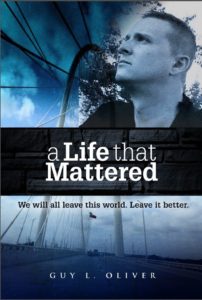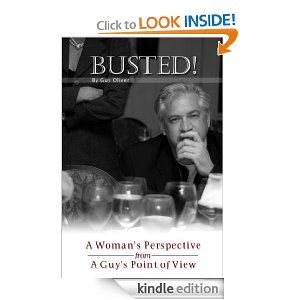In their lives together, my parents, like most of us, experienced many failings but it was their self-perceived failures before their marriage that would galvanize their union in a way so many of us aspire to in a marriage. Yet a step back and a retrospective view of these events suggests that they were not actually failures at all. They were instead merely life-shaping events that led them both to where they believed they were ultimately meant to be.
My mother, a beautiful, talented vocalist and dancer, spent her senior year of high school planning a life away from the only home she had ever known, and I use the word, home, abstractly. Life with her parents lacked the sense of belonging most of us associate with childhood. Whether it was her father’s abusive nature, or her mother’s attempt to manage it, the sense of safety she lacked induced a disassociation she seldom spoke of. And it was in the chance meeting of my father she felt some remedy.
When I asked her about meeting dad she simply said
“When he spoke to me, I felt I was home for the first time. That in those first few hours after meeting him, I was simply where I was meant to be.”
Perplexed, I didn’t press her. It initially struck me as an idyllic response—the kind of thing you expect a person to say when looking back on a life spent together and I was quietly skeptical. I’m not sure what I expected, but it felt clichéd.
Some time later, though, I recalled a friend once saying to me that “when I first met you I felt as though I knew you; as though we were friends in a previous life.” Equally strange, though I hadn’t mentioned it to anyone, the same feeling struck me at our introduction. The comment “Don’t I know you?” immediately sprung to mind.
I have since concluded that some people enter our lives quite by accident—that their presence is purely a chance event, and others are brought into our lives by something much bigger. Something with reason and purpose. Something we don’t understand, and so we call it God.
In the case of my friend, what I didn’t know at the time is that we were each on the cusp of a crisis and would soon require the kind of friendship only we could each provide to the other in that particular moment and circumstance. For me it was the horrendous loss of a child and for her it was a divorce that mirrored my own in many important ways. And while we each would have no-doubt survived the crisis without that friendship, each journey was made immeasurably more bearable through the support we were both uniquely prepared to offer each other.
And I have called that friendship the provision of a loving God.
For my parents, the destination of their journey was altogether different. A lifelong partnership that would touch many lives—at times, it seemed, by the mere force of its existence.
A different provision with a different purpose but the provision of a loving God nonetheless.
Something rarely considered is that God’s provision, if you want to call it that, is typically the unintended result of a partnership between you and the Almighty, and partnerships require preparation. Often the plan we set for ourselves is at odds with what we’re actually meant to give back to the world during our time here. Just as often, though, the pursuit of our plan leads us to the very destination we could not see, but is seemingly mapped out for us in the end as we hazard a retrospective view.
“Now you listen to me! I don’t want any plastics! I don’t want any ground floors, and I don’t want to get married—ever—to anyone! You understand that? I want to do what I want to do…”
– George Bailey
It’s a Wonderful Life
As a child I was puzzled by this scene. It was so clear to me that the writer was trying to express something critical to the plot-line, yet the meaning of that moment in the context of the film eluded me. It wasn’t until years later when I asked my wife at the time about it that I finally understood. Frankly, I was taken aback by the obvious simplicity.
“He’s frustrated.” she said, matter-of-factly.
“This is his last opportunity to leave Bedford Falls and see the world. He loves Mary, but he knows it’s either her or his dreams, so he’s making the choice to leave. Not that it mattered in the end. In the end, he stayed not out of his own choosing but out of a sense of duty. And ultimately the world was better because of it. Because of a life well-lived.”
My mother had this same sort of determination at 18 to seek out her dreams—or so she thought—but with no catalyst such as a failing family business to temper her enthusiasm. Her dream was a bit more ambitious than world travel. She instead simply wanted to be famous, and the naïve mind of an 18 year-old cannot be reasoned with.
Two days after she graduated from high school in May 1955, despite the protestations of both her parents, she boarded a bus for New York City with a couple of suitcases and one hundred dollars. What happened next was predictable. She became friends with a college junior from Ohio State, named Nancy, who spent summers in New York with her well-connected boyfriend. And the two of them spent the summer working and singing once or twice each week for tips at night clubs.
There were no Broadway auditions, no singing or dancing roles, however small, and no chance discoveries as she imagined as a high school senior in a small Oklahoma town. In a city in which beauty, talent, and ambition are the rule, the currency of fame becomes inflated. Human beings go unnoticed, what they have to offer is diminished, and the casualty of individual dreams is the rule. Mom was no exception and she returned to Tulsa in October of that same year.
As I sought to understand this chapter of my mother’s life, her recollection surprised me. I had always assumed she carried the death of her dreams as a burden that deeply affected her young adulthood. To the contrary
“It was a wonderful summer. I spent it in a far away city I always wanted to see with a wonderful girl, and we sang in nightclubs once or twice a week for beer money. What’s not to love?
Mostly, I found in the time I spent with my friend, Nancy, that summer was that what I didn’t really want to be was famous. That wasn’t what I was meant to be. Through that experience I found that what I wanted was to belong, and I found that in your father.”
I believe that God brings the people into your life that you need in the moment that you need them.
Sometimes that person is a friend who helps you cope with something terrible. Sometimes it’s someone who simply rights your way so that you can ultimately find for yourself what you’re meant to be. Sometimes it’s the person who leads you to your destiny.
Two years later, in the fall of 1957 mom would meet that last person and embark on a lifelong journey more enduring than any fame she could have found in New York.


